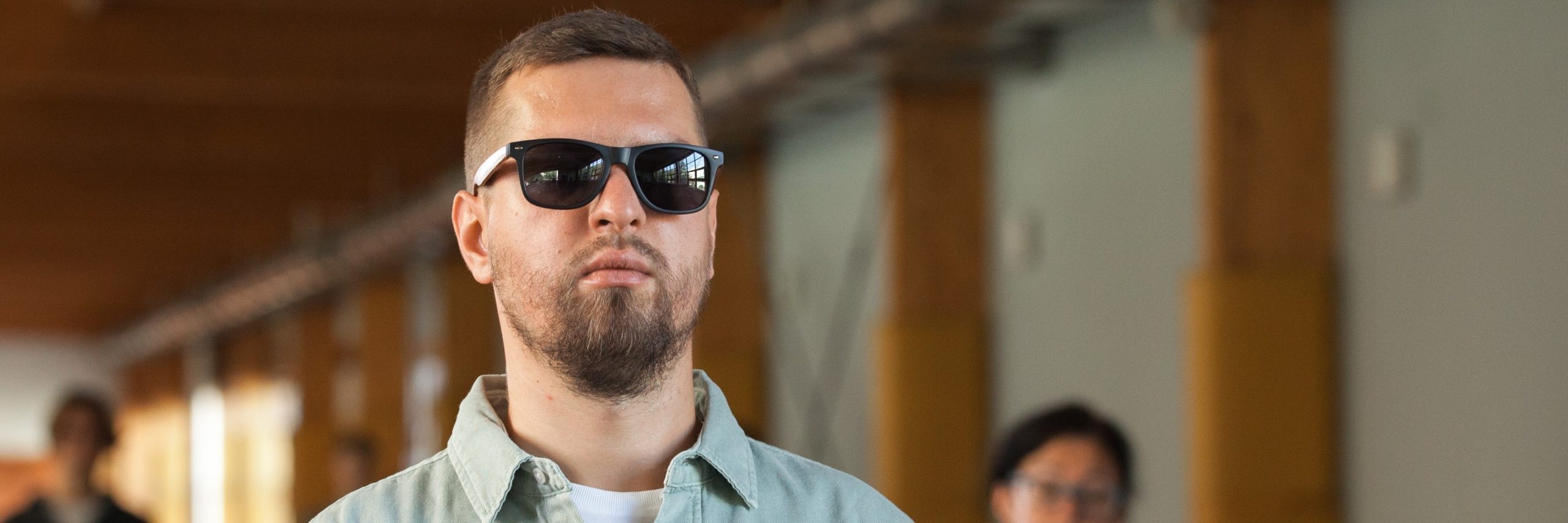Statute
PDF version.
The Statute of Fundacja Vis Maior (The Vis Maior Foundation)
Chapter I
General provisions
§ 1
Fundacja Vis Maior (The Vis Maior Foundation) (hereinafter referred to as the Foundation) was set up on the 26th of September 20020 by Elżbieta Wiatr and Jolanta Kramarz (hereinafter referred to as the Founders). The Foundation was set up on the basis of the notarial deed in the notary?s office of Marek Machowski, al. Solidarności 60 in Warsaw, Poland. The Foundation acts on the basis of the general regulations concerning the foundations as well as on the basis of the provisions of its statute.
§ 2
The Foundation is a legal entity.
§ 3
- The Foundation is allowed to use its distinct trademark.
- The Foundation uses the seal with its official name.
- The Foundation Board is allowed to give awards and prizes to natural persons and legal entities, who rendered great service to the Foundation.
§ 4
The headquarter of the Foundation is the City of Warsaw.
§ 5
The Foundation acts within the territory of the Republic of Poland as well as abroad abiding the laws being in force.
§ 6
The Foundation?s activity is supervised by the competent Minister of Social Policy.
Chapter II
The objectives and forms of activity
§ 7
The objectives of the Foundation:
- Acting against all kinds of discrimination of persons with disabilities, as well as helping them and their families to overcome limitations connected with disability.
- Social inclusion of persons with disabilities.
- Promoting the persons with disabilities being active especially in public, social and professional life.
- Building up appropriate social attitudes towards persons with disabilities.
- Promoting the public space accessibility, including accessibility of transport, information and communication, as well as the idea of universal design.
§ 8
The Foundation can achieve its objectives through:
I. Non-profit activities:
- Organizing and carrying out psychotherapy, sociotherapy, social prevention and psychological counselling for persons with disabilities and their families.
- Carrying out legislative counselling concerning disability issues.
- Running labour agency and carrying out professional counselling.
- Carrying out information campaigns with the use of mass media.
- Acting for the implementation of the Convention on the Rights of Persons with Disabilities in Poland; acting for the implementation of the documents of the European Council and the European Union concerning persons with disabilities; monitoring their implementation and spreading the knowledge about them.
- Monitoring public authority bodies with respect to executing rights and liberties of persons with disabilities as well as protecting their interests.
- Carrying out research activities, including research and analyses for persons with disabilities.
- Organizing seminars, conferences, workshops and training sessions for persons with disabilities and/or concerning disability issues.
- Being in contact with the institutions, both in Poland and abroad, the experience of which may serve to achieve the Foundation?s objectives.
- Publishing materials in print, electronic and other forms.
- Promoting and supporting inclusive education of persons with disabilities, especially in public schools.
- Promoting the use of guide dogs through information campaigns; training prospective guide dog users and their relatives and volunteers, as well as through training the guide dogs themselves.
- Supporting the institutions realizing the activities similar to those realized by the Foundation, especially connected with guide dogs training.
- Social care concerning material and financial support connected with having and training guide dogs for natural persons qualified for the Foundation programs.
- Organizing and running camps and rehabilitation trips for persons with disabilities and for their families.
- Developing physical culture of persons with disabilities through organizing tourist and sport events.
- Providing the chance to satisfy spiritual and religious needs of persons with disabilities and their families through organizing retreats and pilgrimages and cooperation with religious associations.
- Developing artistic skills of persons with disabilities and supporting their active participation in various fields of cultural life.
- Undertaking the steps towards building up rehabilitation, educational and social infrastructure, including organizing and running holiday and rehabilitation centres for persons with disabilities and for their families.
II. For profit activities
- Organizing and carrying out psychotherapy, sociotherapy, social prevention and psychological counselling for persons with disabilities and for their families.
- Carrying out legislative counselling concerning disability issues.
- Carrying out information campaigns with the use of mass media.
- Acting for the implementation of the Convention on the Rights of Persons with Disabilities in Poland; acting for the implementation of the documents of the European Council and the European Union concerning persons with disabilities; monitoring their implementation and spreading the knowledge of them.
- Monitoring public authority bodies with respect to executing rights and liberties of persons with disabilities as well as protecting their interests.
- Carrying out research activities, including researches and analyses for persons with disabilities.
- Organizing seminars, conferences, workshops and training sessions for persons with disabilities and/or concerning disability issues.
- Being in contact with the institutions, both in Poland and abroad, the experience of which may serve to achieve the Foundation goals.
- Publishing materials in print, electronic and other forms.
- Promoting and supporting inclusive education of persons with disabilities, especially in public schools.
- Promoting the use of guide dogs through information campaigns, training prospective guide dog users and their relatives and volunteers, as well as through training of the guide dogs themselves.
- Supporting the institutions realizing the activities similar to those realized by the Foundation, especially connected with the guide dogs training.
- Organizing and running camps and rehabilitation trips for persons with disabilities and for their families.
- Developing physical culture of persons with disabilities through organizing tourist and sport events.
- Providing the chance to satisfy spiritual and religious needs of persons with disabilities and their families through organizing retreats and pilgrimages and cooperation with religious associations.
- Developing artistic skills of persons with disabilities and supporting their active participation in various fields of cultural life.
- Undertaking the steps towards building up rehabilitation, educational and social infrastructure, including organizing and running holiday and rehabilitation centres for persons with disabilities and for their families.
Chapter III
Property of the Foundation
§ 9
The property of the Foundation is a financial contribution of 2 thousands PLN, the whole of which is allocated for the founding fund.
§ 10
The Foundation takes its financial resources in particular from:
- The income from real property, personal property and property rights;
- Donations, inheritances, bequests, subventions and subsidies;
- The income from public collections and events;
- The income from the commercial activity.
- Other revenues.
§ 11
- All income of the Foundation is allocated towards realizing the statutory objectives of the Foundation.
- It is forbidden in particular:
1) To give loans or to secure liabilities on the Foundation?s property for its bodies, Members or employees, and for persons, to whom the Members of its Bodies and employees are married, with whom they reside, or are related through blood ties or other kinds of relationship, both linear and collateral up to cousins-twice-removed; or are related through adoption or custody hereinafter referred to as Close Persons;
2) To transfer the Foundation?s property to the Members of its bodies or to employees as well as to their Close Persons according to the rules other than those applying to third-party persons, especially if the transfer is made for free or on preferential terms;
3) To use the Foundation?s property by the Members of the Foundation?s bodies or employees and their Close Persons according to the rules other than those applying to third-party persons, unless the use of the Foundation?s property directly follows from its statutory goals;
4) To buy goods or services from the entities, in which the Members of Foundation?s bodies or employees and their Close Persons have interests;
5) According to the rules other than those applying to third-party persons, or for the prices higher than the market ones.
Chapter IV
Bodies of the Foundation
§ 12
The Bodies of the Foundation are:
- The Council of the Foundation hereinafter referred to as the Council.
- The Board of the Foundation hereinafter referred to as the Board.
- The Programme Board of the Foundation hereinafter referred to as the Programme Board.
§ 13
- It is forbidden to be a Member of the Council and the Board simultaneously.
- The Founders may be the Members of the Foundation?s bodies.
- Members of the Council cannot be married to or reside with the Members of the Board; nor can they have any family or professional relationship with the Members of the Board.
- A person who is convicted with the lawful court ruling for the offence prosecuted by the public prosecution or for a financial offence cannot be a Member of the Council.
§ 14
The Council is the body with initiative, opinion-giving, controlling and supervising competences.
§ 15
The Council consists of 2 up to 9 persons.
- The initial Members of the Council (acting on the basis of this Statute) are appointed by the Board with an unanimous resolution.
- The subsequent changes of the Members of the Council are made by the Council itself for a three-year term.
- a) The Council is obliged to appoint new member(s), if the Council consists of just one person, because the membership of one or more Members have been ceased.
- A person may be the member of the Council for more than one term.
- The Council selects its Chairman (hereinafter referred to as the Chairman and its Deputy Chairman (hereinafter referred to as the Deputy Chairman) from its members.
§ 16
- The work of the Council is managed by its Chairman.
- In case of Chairman?s absence, Deputy Chairman substitutes for them
- The Chairman may authorize the Deputy Chairman or other Member of the Council within the function they performs.
- The Chairman in particular:
- a) Specifies the subject, date and place of meetings of the Council;
- b) Chairs the meetings of the Council;
- c) Represents the Council outside the Foundation;
- d) Initiates and organizes the work of the Council.
§ 17
- The Council meets at least once a year.
- The meetings of the Council are called by the Chairman or Deputy Chairman on their initiative or upon a written request submitted by at least half of the Council Members or upon a written request submitted by the Board.
- The persons invited by the Council, in particular experts, Members of the Board and employees may participate in the meetings of the Council. The guests have the right to express their opinions on the issues discussed by the Council.
- The Council makes its decisions in the form of resolutions.
- The resolutions are taken in open vote with the ordinary majority of votes in the presence of at least half of the Council Members, except for the matters regulated in a different way in the paragraph no. 6 of this section.
- Each Member of the Council has one vote. If the number of votes for and against is equal, the decisive vote is the one of the Chairman or (if they are not present) of the Deputy Chairman.
- The way the Council works may be stated in the rules passed by the Council.
§ 18
The Council of the Foundation in particular:
- Approves annual programs of the Foundation?s activity and the long-term strategies for the Foundation; it also controls their realization.
- Examines and approves annual factual and financial reports of the Foundation?s activity prepared by the Board; it also adopts the resolution of the vote of approval for the Board.
- Appoints the Members of the Board for a three-year term from the group of candidates presented by the Board. The Founders may present their candidates too.
- Dismisses the Board, if the Board shall not be given the vote of approval. It also appoints a new Board in replacement for the dismissed one.
- Examines the membership changes within the Board upon request of the Board.
- Passes and changes the rules of its work.
- Addresses the Board with the motions concerning the activity of the Foundation;
- Expresses its opinions with respect to the matters presented to it by the Board;
- Upon request of the Board, it takes a stand on changing the Statute, fusion with other foundation or liquidation of the Foundation.
- Upon request of the Board, it takes a stand on appointing the Programme Board; it also accepts the recommendations for the candidates to the Programme Board presented by the Board.
§ 19
One?s membership in the Council may be terminated before the end of the term in case of submitting a written resignation from being a Member; in case a Member shall be convicted (as indicated in section 13, paragraph 4); or in case of dismissal of the Member or of his/her death.
The Council may dismiss its Member in case of:
- Permanent avoidance of performing duties as a Member of the Council, including absence during the meetings of the Council;
- Permanent loss of contact with a Member of the Council (for more than 6 months);
- Material abuse of the Foundation Statute or not realizing the resolutions of the Council;
- Acting intentionally against the Foundation or behaving in a way, which is harmful to the Foundation;
- Other circumstances, which make performing Member?s duties impossible.
§ 20
- Members of the Council (in relation to their Member duties) may receive the reimbursement of reasonable costs or the salary not higher than the average monthly salary in commercial sector as published by the President of Statistics Poland for a previous year.
- The Board specifies the rules of reimbursement of costs or of salaries for the Members of the Council.
§ 21
- The Council elects the Members of the Board for a three-year term.
- If the membership of one Member of the Board ceases, the Council may appoint another Member for the period up to the end of a current term.
- The Council is obliged to appoint new Member(s) of the Board, if the Board consists of less than two persons, as a result of one(s) membership being ceased.
- The Board may take the resolution on shortening its term.
- In the case of not appointing the Board within a month since presenting the candidates for the Board members (as described in section 18, paragraph 3), the right to appoint the Board is passed to the Founders.
- Changes in the membership of the Board during its term are made by the Council upon request of the Board, except for not giving the vote of approval to the Board, in which case, the Council may dismiss the whole Board and appoint the new one.
- Changes in the membership of the Board may also take place in the case of submitting a written resignation by a Member, dismissing him/her or his/her death.
- A member of the Board may be dismissed by the Council in case of:
- Permanent avoidance of performing duties as a Member of the Board, including not participating in the meetings of the Board;
- Permanent loss of contact with a Member of the Board (for more than 6 months);
- Material abuse of the Foundation Statute or not realizing the resolutions of the Board;
- Acting intentionally against the Foundation or behaving in a way, which is harmful to the Foundation;
- Other circumstances, which make performing Member?s duties impossible.
§ 22
- The Board consists of 2 up to 5 Members.
- The Board selects from its Members the President of the Foundation (hereinafter referred to as the President) as well as the Deputy President of the Foundation (hereinafter referred to as the Deputy President).
- Initially, the Members of the Board (after the registration of the Foundation) are the Founders.
- Members of the Board perform their duties either free of charge or for a remuneration.
- Members of the Board may be employed in the Foundation.
- A person who is convicted with the lawful court ruling for the offence prosecuted by the public prosecution or for a financial offence cannot be a Member of the Board.
§ 22
Each Member of the Board has one vote. If the number of votes for and against is equal, the decisive vote is the one of the President or (if they are not present) of the Deputy President.
§ 23
- Meetings of the Board take place at least 4 times a year.
- Meetings of the Board are called by the President on their own initiative or upon request of the Deputy President or of at least two Members of the Board.
- Meeting of the Board may be called in an oral, written or electronic form.
§ 24
- The Board takes its resolutions with the ordinary majority of votes of its Members present at the meeting.
- In the case of equal number of votes for and against, the decisive one is the vote of the President.
- If the Board consists of two persons, the resolutions are taken unanimously.
§ 25
- The Board manages the activity of the Foundation and represents it outside the Foundation.
- The Board in particular:
- Represents the Foundation outside the Foundation;
- Develops and passes annual and long-term plans and strategies for the Foundation, taking into account the motions of the Council in this respect;
- Manages the property and funds of the Foundation;
- Accepts the Donations, inheritances, bequests, subventions and subsidies;
- States the rules of the Board and the Foundation office and changes them;
- Sets up and liquidates organizational units and departments of the Foundation;
- Appoints and dismisses persons, who manage the Foundation;
- Establishes staff policy of the Foundation, including the decisions on the number of staff Members; on the rules of paying the salary; on the amount of resources allocated for the salary;
- Prepares and submits to the Council the annual factual and financial reports on the activity of the Foundation;
- Addresses the Council with the motion concerning the opinion on changing the Statute, fusion with some other foundation, or liquidating the Foundation;
- Addresses the Founder with the motion concerning the opinion on changing the Statute, fusion with some other foundation, or liquidating the Foundation.
- Takes the resolutions on changing the Statute, fusion with some other foundation or liquidating the Foundation after getting the opinion of the Council and acceptance of the Founders;
- May appoint the Program College of the Foundation and its members after getting the positive opinion of the Council.
§ 26
- On the stipulation of paragraph 2, declarations of intent on behalf of the Foundation are made by each Member of the Board acting together or by the President on their own.
- If the Board consists of two persons, or if the amount of a contract is lower than 1,000 PLN, the declarations of intent may be made by each Member of the Board on their own.
§ 27
- After receiving a positive opinion from the Council and after the approval of the Founder, the Board may appoint the Programme Board.
- The Programme Board is an opinion-giving and advisory body.
§ 28
- The Programme Board Members may be the persons, whose knowledge and authority is important for the Foundation?s activity.
- The Programme Board Members are appointed and dismissed by the Board after getting the positive opinion of the Council.
- The Programme Board Members receive the reports on the Foundation?s activity from the Board.
- Each of the Programme Board Members has his/her advisory and opinion-giving rights individually.
Chapter V
Final provisions
§ 30 (erased)
§ 31
- Change of this Statute may neither lead towards material changes of the Foundation?s objectives nor stand in opposition to the will of the Founders.
- Changes in this Statute are made by the Board after receiving an opinion of the Council.
- The Board shall notify the Founders of the changes by letter or by e-mail with the confirmation of receipt. The Founders may make an objection to the changes within two weeks from receiving the information.
- The Founders shall notify the Board of any changes of their postal or e-mail addresses by letter or e-mail.
- If a letter mentioned in paragraph 3 shall be returned or if the Board shall receive no confirmation of receiving an e-mail (mentioned in paragraph 3) within three weeks, the Founders shall be considered to make no objection to the changes of this Statute.
§ 32
The Foundation does not carry out any business activity.
§ 33
The Foundation may be merged with a foundation with similar objectives.
§ 34
- The decision on the Foundation?s liquidation is made by the Board after receiving a positive opinion from the Council as well as the approval of the Founders, if statutory objectives are fully realized or if there are no more financial resources or property of the Foundation left.
- Liquidation process is carried out by the liquidator appointed by the Board.
- Liquidator has the rights of the Board.
- The property of the Foundation, after accomplishing liquidation process, would be given to a non-governmental organization, which would be chosen by the Board and which realizes similar objectives.






